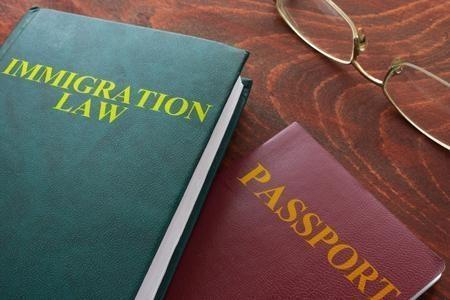What Is Involved in a U.S. Immigration Naturalization Ceremony?
 The U.S. Citizenship and Immigration Services (USCIS) oversees the lawful immigration to the United States. Due to the global COVID-19 pandemic, many immigration services have been conducted remotely or online as opposed to in-person over the past few months. USCIS has started to safely resume in-person services, but some naturalization ceremonies may still be conducted differently compared to the past. Those individuals who wish to become a natural citizen must complete an Application for Naturalization, which is Form N-400. Once accepted, he or she must take the Oath of Allegiance at a naturalization ceremony, which is the final step in completing the legal process to become a U.S. citizen. There are two different types of ceremonies, judicial, and administrative. The court administers the Oath of Allegiance in a judicial ceremony. USCIS administers the Oath of Allegiance in an administrative ceremony.
The U.S. Citizenship and Immigration Services (USCIS) oversees the lawful immigration to the United States. Due to the global COVID-19 pandemic, many immigration services have been conducted remotely or online as opposed to in-person over the past few months. USCIS has started to safely resume in-person services, but some naturalization ceremonies may still be conducted differently compared to the past. Those individuals who wish to become a natural citizen must complete an Application for Naturalization, which is Form N-400. Once accepted, he or she must take the Oath of Allegiance at a naturalization ceremony, which is the final step in completing the legal process to become a U.S. citizen. There are two different types of ceremonies, judicial, and administrative. The court administers the Oath of Allegiance in a judicial ceremony. USCIS administers the Oath of Allegiance in an administrative ceremony.
Components of the Naturalization Ceremony
The principles in the Oath of Allegiance can be found in the Immigration and Nationality Act (INA), which stipulates that all applicants shall take an oath to support and defend the U.S. Constitution and laws of the United States against all enemies, whether foreign or domestic. It also states that an individual will renounce any allegiance to a foreign power from his or her native country.
The following is a synopsis of what takes place during a naturalization ceremony:
- Notice to Take the Oath of Allegiance: In some cases, the naturalization ceremony may be on the same day as the assigned interview. If not, an applicant will be mailed a notice with the date, time, and locale of the ceremony through a Notice of Naturalization Oath Ceremony, which is Form N-445. If, for some reason, someone cannot make his or her scheduled naturalization ceremony, he or she may request a new date at a local USCIS office, along with a letter explaining the valid reasons for not attending the originally scheduled ceremony. If a person fails to appear two or more times for the naturalization ceremony, his or her application may be denied.
- Ceremony Check-in: Upon arriving at the ceremony, all naturalization applicants must check in with a USCIS officer who will review the answers to the questions on the Notice of Naturalization Oath Ceremony. The questionnaire should always be completed before arrival to save time.
- Permanent Resident Card: An immigrant’s Permanent Resident Card must be returned to USCIS at the naturalization ceremony. However, there are some exceptions to this rule. If an applicant can provide proof that the card was misplaced, or if he or she was not awarded permanent residence due to military service, this requirement may be waived. After taking the oath, the individual will receive a Certificate of Naturalization.
- Taking the Oath of Allegiance: Under U.S. immigration law, an individual is not considered a U.S. citizen until he or she takes the Oath of Allegiance.
- Certificate of Naturalization: It is important to review the Certificate of Naturalization before exiting the ceremony in case there are any clerical errors. If any information is wrong, a USCIS officer must be notified right away. The Certificate of Naturalization stands as an official confirmation of U.S. citizenship.
The naturalization ceremony is meant to be a celebration, and USCIS aims to make it a memorable experience. Videos of how citizenship has changed other people’s lives for the good are shown, and patriotic music such as “The Star-Spangled Banner” is played. Once a legal U.S. citizen, a person is able to register to vote, apply for a U.S. passport, and update his or her Social Security information to reflect his or her new status.
Contact an Illinois Immigration Lawyer
Immigrating to the United States of America is a dream come true for many people all over the world. Whether joining family members here or fleeing persecution in your native land, many hope to establish a better life. The experienced Mevorah & Giglio Law Offices will guide you through the legal steps of becoming a U.S. citizen. Our qualified and compassionate Illinois immigration attorneys understand how important this major life transition is for you or your loved one. That is why we keep up to date on any changes to legislation that affect your rights to immigration. To schedule your free consultation, call us today at 630-932-9100.
 English,
English,
 Spanish,
Spanish,
 Polish,
Polish,
 Urdu
Urdu













 Make a Payment
Make a Payment



